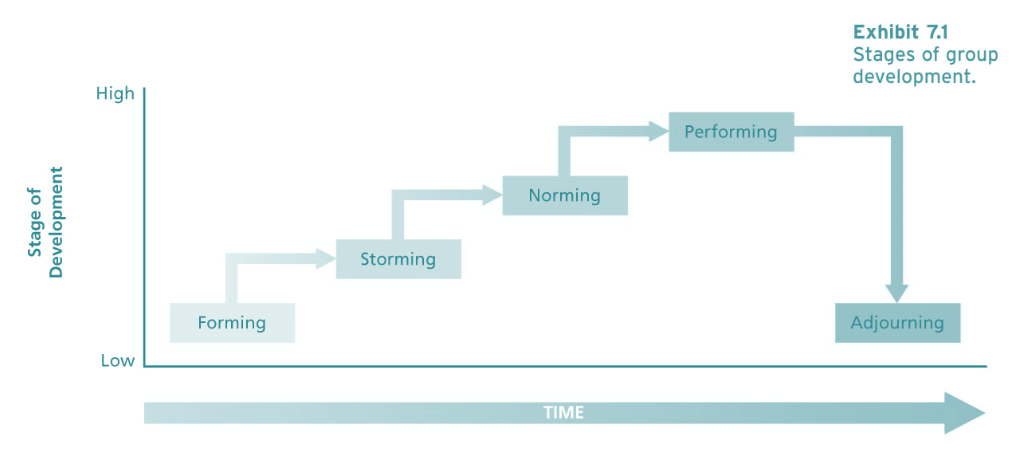The Tuckman team model is a model that describes how teams form and work effectively together. It’s made up of five iterative stages that range from formation to effective work:1
- Forming — the team comes together but operates very individually as they get acquainted with each other.
- Storming — when the team is in conflict. Important because it results in a clearer understanding of team dynamics and expectations, compromises, and discussion.
- Norming — when the team has “got its act together”. Team members are more willing to compromise to make the team work effectively, and adopt/build on the ideas of others instead of just compromising. There’s a general consensus on how the team operates. Group has momentum.
- Performing — a cohesive team dedicated to working on the project. Team roles are clearly defined, work being done is clearly understood.
- Adjourning — when the team breaks up or when a significant change in a longstanding team occurs (like a member leaving).

Footnotes
-
From Designing Engineers by Susan McCahan et al. ↩